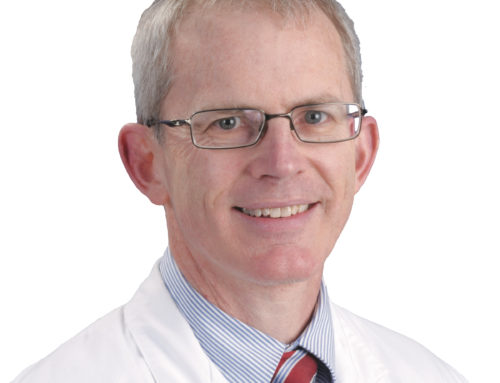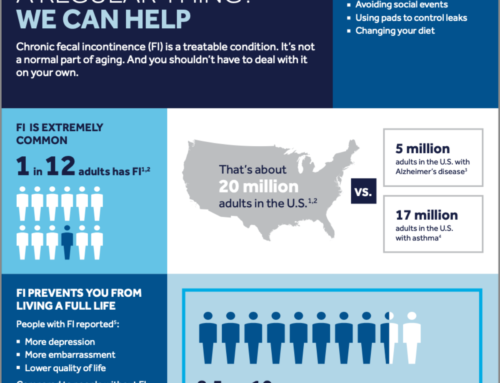The thought of colorectal cancer can be scary. Colorectal cancer is the third leading cause of cancer death, and it’s often silent in the earliest stages – meaning symptoms don’t typically appear until the disease is more advanced. That’s why USA colorectal surgeons are encouraging you to do something to help beat colon cancer before it starts – get your screening colonoscopy.

“One key to recognizing the value of colonoscopy is to understand the math of screening. The chance that someone will develop colon cancer in our country is about one in 23 for men or one in 25 for women. The chance of dying from complications of screening is less than 1 in 100,000,” says Eric Nelson, MD, FASCRS, colorectal cancer surgeon at University Surgical Associates. “Although the chance of any individual colonoscopy discovering a cancer is low, the point is that the procedure is not only diagnostic, but also therapeutic. That means if we find precancerous polyps, we can remove them, which markedly decreases a person’s colon cancer risk.”
Even though it’s shown to be incredibly effective, about 60 percent of people who should have a colonoscopy each year don’t follow through with the appointment. That number is even greater in this area of the country. Some people are concerned about the bowel preparation or they’re afraid it will be painful, uncomfortable or done without sedation, even though colonoscopies have vastly improved in recent years.
The dreaded bowel prep is now easier to complete, and adequate sedation helps patients feel comfortable – without remembering anything about it afterwards. Simply put, it’s completely painless.
Who should have a colonoscopy and when?
Even though overall rates of colorectal cancer have been steadily falling, recent studies have shown an uptick in the incidence of colon cancer in younger people and for those who are not considered high risk for the disease. And in 2018, new data emerged on the increased risks of colon cancer in those under age 50. That’s why the American Society of Colon and Rectal Surgeons (ASCRS) recommended lowering the age suggested for an initial screening colonoscopy to age 45, followed by screenings every 10 years for people at average risk of developing colorectal cancer.
The Centers for Disease Control also suggests earlier and more frequent screenings if any family members have had colorectal cancer or polyps, inflammatory bowel disease like Crohn’s or ulcerative colitis or one of several genetic syndromes.
If you have a family history of colon cancer, especially a first-degree relative with the disease, it’s important to talk with your doctor about your risk in the context of other health factors and determine your appropriate screening schedule.
Don’t Ignore the Symptoms
Colorectal cancers can present in many different ways. Part of the reason colonoscopies are so important is that often times people have no symptoms at all. Even if you don’t have a family history and aren’t yet 45 but are experiencing symptoms, these warning signs are a reason to see your doctor:
- Blood in your stool
- Bowels never empty completely
- Constipation, diarrhea or narrower stools than usual
- Nausea or vomiting
- Persistent gas, pain, cramps or feeling bloated
- Rectal bleeding
- Unexplained weight loss
- Weakness or fatigue
“It’s important to note that colonoscopy is not just for individuals who are bleeding or having other symptoms – it’s for everybody regardless of symptoms. The point is to catch cancer or remove polyps before symptoms can develop. By the time symptoms are noticed, the cancer is frequently more advanced,” explains Dr. Nelson. “I often see patients who think they don’t need a colonoscopy because of their diet or not smoking. While a person’s daily habits can decrease their individual risk of colon cancer, the overall risk is still high enough that colonoscopy screening is definitively recommended.”
Expertise You Can Trust
The colorectal surgeons at USA are experts in the surgical and nonsurgical treatment of colon and rectal problems and play an instrumental role in the effective screening, prevention and treatment of colorectal cancer.
Studies have shown that patients treated by colorectal surgeons are more likely to survive colorectal cancer because of their advanced training and the large number of colon and rectal disease surgeries they perform.







I had no idea that it was crucial to discuss your risk in the context of other health risks with your doctor and identify your proper screening schedule if you have a family history of colon cancer, particularly if you have a first-degree relative who has the illness. This must be the reason my mother is so eager to have the operation herself. I can understand why she wants a colonoscopy because her sister was just diagnosed with colon cancer and she is concerned that she may have the same gene mutation. I hope everything works out well.